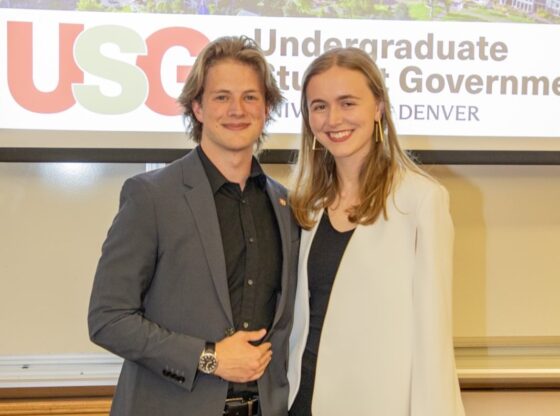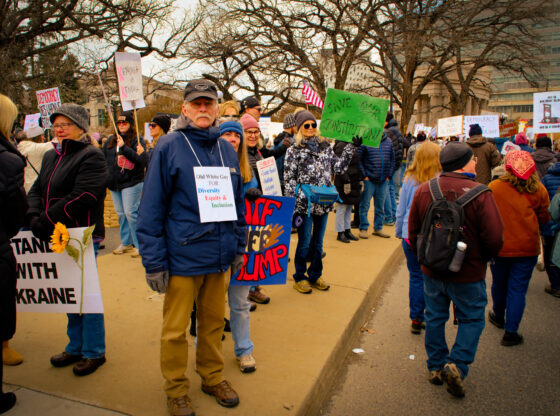“Precious Stones,” a play about the Israeli/Palestinian conflict, was performed last week in Davis Auditorium.
The play is written by Jamil Khoury who is co-founder of the Silk Road Theatre Project, a company dedicated to sponsoring playwrights of Asian, Middle Eastern and Mediterranean backgrounds.
Khoury is an Arab American, whose father is from Syria and whose mother is from Poland.
“Precious Stones” is set in 1989 in Chicago. During this time, Khoury was in Jerusalem working for the United Nations as a human rights monitor for the Palestinian refugees.
The play is about two women, one an American Jew, played by Heather Graff, whose parents are Holocaust survivors from Poland and the other is a Palestinian from Beirut, played by Maja Wampuszyc, whose relatives were kicked out of Israel when the Jews came to settle there.
The women meet when Andrea, the Jewish woman, who works for the Jewish Council, wants to start a dialogue with a group of women from both the Jewish and Arab communities. Leila and Andrea meet and start a discussion about the politics surrounding Israel/Palestine.
They both give their opinions about how things happened and what should be done to solve the problem. Andrea is a progressive Zionist who supports the making of two states, one for Israelis and one for Palestinians, while Leila is a nationalist who would like to see one state for both groups of people.
Even though Andrea and Leila already have enough differences between them, there is still more to this culture clash. Andrea is a lesbian who fights for gay rights and struggles every month to make rent.
Leila, a closet lesbian, married to a gay man, is in the upper class because she inherited money from her parents and is also supported by her husband.
As anyone can see class differences, political and cultural standpoints and sexual politics are the main themes of the play.
Besides the two main characters, Andrea and Leila, there are also four secondary characters. These characters are also played by the women playing Andrea and Leila. Graff plays Leila’s husband, Samir, and Leila’s cousin, Bassima. Wampuszyc plays Andrea’s boss, Esther, and Andrea’s roommate, Rachel.
A bell would ring each time one or both of the characters change to signify to the audience the change. Each character has a different accent and different body language. To go along with the small cast, there is also a minimal set. There are two chairs and a flag as the backdrop, which is half Palestinian and half Israeli.
The play is very fast moving and sometimes creates confusion in the dialogue when there is a change in character. Also, there is a lot of historical and political background that the play is based on that if those in the audience don’t know, then they will have a hard time following what the characters are talking about.
The ending is left unresolved and shows how the controversy in Israel still continues and how there is still a fight going on for gay rights.
Leila and Andrea end up falling in love despite their differences, but at the end they still have not found a way to work out their relationship, just as Israel and Palestine have not yet found a way to work out their’s.












